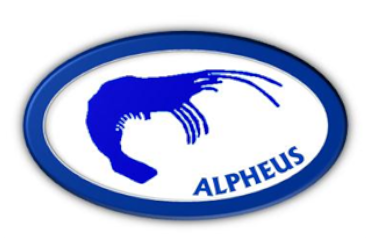
je fais un don

je fais un don

objectif
Évaluation de l’effet d’une dose de charge par Ticagrelor comparée au Clopidogrel pour diminuer les événements ischémiques chez les patients bénéficiant d’une angioplastie coronaire programmée.
date de réalisation
2017
nombre de patients
1900
nombre de centres participants
Étude Internationale multicentrique
type de financement
Privé (AstraZeneca)
Référence
NCT02617290
Assessment of Loading With the P2Y12 Inhibitor Ticagrelor or Clopidogrel to Halt Ischemic Events in Patients Undergoing Elective Coronary Stenting (ALPHEUS)
Les patients traités par angioplastie coronaire dite « programmée » avec pose de stent suite à la détection d’une ischémie et/ou dans le cadre d’un angor stable sont fréquents en France ou 200 000 stents sont posés chaque année.
Il s’agit d’une procédure relativement sûre, néanmoins certaines complications demeurent. Certaines sont fréquentes mais peu graves à court terme (les infarctus péri-procéduraux) et sont néanmoins associées à un pronostic plus péjoratif à moyen terme. D’autres sont rares mais aigues et graves (les thromboses de stents ou les accidents vasculaires cérébraux).
Essai clinique académique randomisé en ouvert, lancé par le Fonds de Dotation ACTION et dont la promotion réalisée par l’Assistance Publique des Hôpitaux de Paris (AP-HP), ALPHEUS a pour objectif est de démontrer la supériorité du ticagrelor (un nouveau médicament dans cette indication) par rapport au clopidogrel (médicament ancien et de référence) sur la diminution des complications pouvant survenir lors d’une intervention coronaire programmée.
The new P2Y12 inhibitors prasugrel (Efient®-Effient®) and ticagrelor (Brilique®-Brilinta®) have shown promising results in the respective TRITON and PLATO trials making of prasugrel and ticagrelor recommended first line treatments for acute coronary syndrome ACS (ESC Guidelines: Class 1 LOE B). These two drugs showed superiority over clopidogrel in ACS patients undergoing percutaneous coronary intervention (PCI), by the dramatic diminution of stent thrombosis, the reduction in death or Myocardial Infarction (MI) as well as the reduction in death in a meta-analysis.
The field of elective PCI (stable patients) has not been studied with these 2 new drugs and clopidogrel remains the standard of care. However, off-label use of prasugrel and ticagrelor is increasing in patients undergoing high risk elective PCI (left main, diabetics, multiple stenting, high risk of stent thrombosis, no clopidogrel pretreatment…) but is not supported by scientific evidence. More than half of PCI patients undergo elective stenting for proven ischemia and/or stable angina, a relatively safe procedure with the use of the latest generation of stents. However complications remain either frequent when considering PCI-related myonecrosis/myocardial injury that have been linked to the prognosis of patients or rare but serious when considering stent thrombosis, Q wave MI or stroke, leaving room for improvement with these two newest drugs.
The investigators propose to perform a multicenter international study in stable patients undergoing elective PCI with a randomization between clopidogrel and ticagrelor. The investigators hypothesize that this study will show superiority of the new P2Y12 inhibitor over clopidogrel in elective PCI on the primary ischemic endpoint (peri-procedural MI and myocardial injury) without significant excess bleeding (BARC definition)
source clinicaltrials.gov
Publications
Présentation

En cours
En cours
En cours